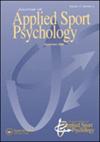职业女排的文化多样性与团队动态
IF 2.7
2区 心理学
Q2 HOSPITALITY, LEISURE, SPORT & TOURISM
引用次数: 2
摘要
在本研究中,我们探讨了运动员对队友互动和团队功能的文化多样性的看法。具体来说,我们探讨了文化多样性与民族和种族多样性的关系。本研究采用建构主义定性案例研究方法,对来自6个国家、4个种族的11名职业女排运动员(Mage = 27, SD = 3.13)进行研究。运动员完成了人口统计和社会网络问卷,旨在将我们的案例背景化,并为后续的半结构化访谈提供信息。访谈包括与团队组成、成员互动和团队功能有关的对话。总体而言,研究结果表明,在该职业团队中,球员对文化多样性的感知主要是围绕子群体和自我与团队之间的差异感知形成的。这些子群体主要基于国籍,并以民族刻板印象分享集体经验。运动员还讨论了与文化多样性相关的语言、各种任务和社会相关行为等因素,这些因素影响了团队内的队友互动和社会动态。我们的研究结果可以为有兴趣利用多元文化专业运动队优势的运动员和教练提供指导。摘要:我们研究了职业女排多元文化背景下的文化多样性(即民族和种族)。参与者描述了基于国籍的自然差异,以及个人行为如何与他们对国家刻板印象的看法相匹配。运动员们通常不愿讨论文化多样性,并将这个话题定位为“在某些条件下是好的”。本研究的结果可以帮助团队管理者和教练考虑文化多样性对团队运作的影响,并认识到形成国家亚群体和对队友行为有偏见的看法的可能性。我们的研究结果可以向应用运动心理学专业人士和教练重申,有目的地考虑球员对球队文化多样性的看法,以确定从球队组成中受益的方法的重要性。本文章由计算机程序翻译,如有差异,请以英文原文为准。
Cultural diversity and group dynamics in a professional women’s volleyball team
Abstract In this study, we explored athletes’ perceptions of cultural diversity regarding teammate interactions and team functioning. Specifically, we explored cultural diversity in relation to national and racio-ethnic diversity. A constructivist qualitative case study approach was employed with a professional women’s volleyball team comprising 11 athletes (Mage = 27, SD = 3.13) representing six nationalities and four racio-ethnicities. The athletes completed demographic and social network questionnaires intended to contextualize our case and to inform follow-up semi-structured interviews. The interviews involved conversations pertaining to team composition, member interactions, and team functioning. Generally, the results indicated that within this professional team, players’ perceptions of cultural diversity were mainly formed around subgroups and perceptions of dissimilarity between the self and the team. The subgroups were largely based on nationality and shared collective experiences with national stereotypes. The athletes also discussed factors such as language and various task and socially related behaviors associated with cultural diversity that impacted teammate interactions and the social dynamic within the team. Our results can serve to guide athletes and coaches interested in capitalizing on the strengths of multicultural professional sport teams. Lay summary: We examined perceived cultural diversity (i.e., national and racio-ethnic) embedded within a multicultural context of a professional women’s volleyball team. Participants described a natural divide based on nationalities, and how individual behaviors matched their perceptions of national stereotypes. Athletes were generally hesitant to discuss cultural diversity and positioned the topic as “good under certain conditions.” IMPLICATIONS FOR PRACTICE The results from this research can help team managers and coaches to consider the impact that cultural diversity can have on team functioning and recognize the potential for the formation of national subgroups and biased perceptions of teammates’ behaviors. Our findings can reiterate to applied sport psychology professionals and coaches the importance of purposefully considering players’ perceptions of the cultural diversity within a team to identify ways to benefit from their team’s composition.
求助全文
通过发布文献求助,成功后即可免费获取论文全文。
去求助
来源期刊
CiteScore
6.90
自引率
9.40%
发文量
39
审稿时长
>12 weeks
期刊介绍:
The Journal of Applied Sport Psychology (JASP) is a refereed journal designed to significantly advance thought, theory, and research on applied aspects of sport and exercise psychology. Submissions such as experimental studies, qualitative research, correlational studies, case studies, position papers, critical reviews, theoretical developments specific to applied research conducted in sport and/or exercise settings, or having significant applied implications to sport and exercise, are appropriate content for the JASP. Please see the recent Editorial for further details on the aims and scope of the journal. JASP is a non-proprietary journal that is an official publication of the Association for Applied Sport Psychology (AASP). The purpose of AASP is to promote the development of psychological theory, research, and intervention strategies in sport and exercise psychology. The Journal is a direct benefit of membership in AASP and is received by its student and professional members. The publisher of the JASP is Taylor and Francis, Inc. of Philadelphia, PA.

 求助内容:
求助内容: 应助结果提醒方式:
应助结果提醒方式:


